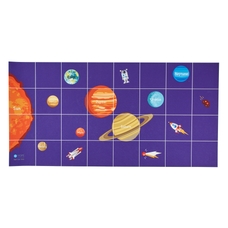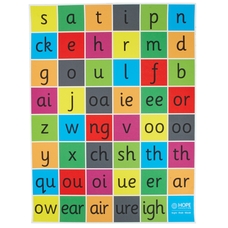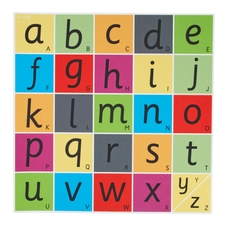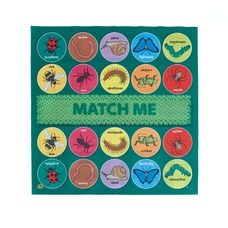EaRL Plastic Pocket Mat from Hope Education
EaRL Plastic Pocket Mat from Hope Education
Product code: A1825297
Product Description
Make your very own coding mat with the Earl Plastic Pocket Mat from Hope Education. Use our very own EaRL coding cards or simply create your own for the perfect coding introduction for early learners. The mat has a whole host of uses from story telling to instructional writing, and will be a welcome and well used addition to your classroom.
Features include, suitable for KS1 & KS2, dimensions mat size 942 x 790 mm, pocket size 122 x 145 mm, tough wipe clean surface, suitable for all settings, easily transportable and can be packed away for storage, can be hung or used on the floor.
- Encourages independent learning in young children.
- Practice designing, writing and debugging programs.
- Introduce and nurture early programming skills.
- Understand what algorithms are, how they are implemented as programs on digital devices, and that programs execute by following precise and unambiguous instructions.
- Design, write and debug programs that accomplish specific goals, including controlling or simulating physical systems; solve problems by decomposing them into smaller parts.
- Create and debug simple programs whilst using logical reasoning to predict the behaviour of simple programs.
Further Information
- Age Recommended from
- 3 Years
- Brand
- EaRL
- Key Stage
- Key Stage 1Key Stage 2
Useful Links
Make your very own coding mat with the Earl Plastic Pocket Mat from Hope Education. Use our very own EaRL coding cards or simply create your own for the perfect coding introduction for early learners. The mat has a whole host of uses from story telling to instructional writing, and will be a welcome and well used addition to your classroom.
Features include, suitable for KS1 & KS2, dimensions mat size 942 x 790 mm, pocket size 122 x 145 mm, tough wipe clean surface, suitable for all settings, easily transportable and can be packed away for storage, can be hung or used on the floor.
- Encourages independent learning in young children.
- Practice designing, writing and debugging programs.
- Introduce and nurture early programming skills.
- Understand what algorithms are, how they are implemented as programs on digital devices, and that programs execute by following precise and unambiguous instructions.
- Design, write and debug programs that accomplish specific goals, including controlling or simulating physical systems; solve problems by decomposing them into smaller parts.
- Create and debug simple programs whilst using logical reasoning to predict the behaviour of simple programs.
Further Information
- Age Recommended from
- 3 Years
- Brand
- EaRL
- Key Stage
- Key Stage 1Key Stage 2





